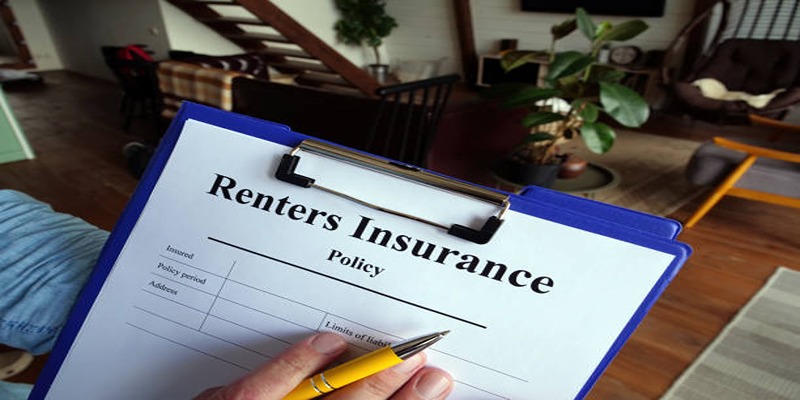Packing up your life and moving to a new home can feel like a fresh start. However, between boxes, schedules, and logistics, there is a real risk that something might go wrong. Things get dropped, scratched, lost, or damaged in transit—no matter how careful you or the movers are. That's where moving insurance steps in.
It's one of those things most people don't think about until it's too late. Buying moving insurance isn't about expecting the worst—it’s about making sure you’re not left footing the bill if something valuable gets ruined or vanishes. It's a small decision that can save a lot of trouble.
What Is Moving Insurance?
Moving insurance is a type of protection that helps cover the cost of items that are damaged, destroyed, or lost during a move. It isn’t always included in the price when you hire a moving company. Even though many movers offer what’s called “valuation coverage,” it’s not the same as full protection. Valuation coverage only provides a minimal payout, typically based on weight rather than actual value. If a heavy item like a sofa gets a small rip, or if a light but expensive laptop disappears, that payout may fall short.
Buying proper moving insurance means you can get reimbursed based on the actual value of your items. There are different types to consider, such as full-value protection and third-party moving insurance. Full value protection may be offered by your moving company and covers repair, replacement, or compensation. Third-party insurance, on the other hand, is usually purchased separately and can offer more specific coverage based on your needs.
Why Homeowners and Renters Insurance Might Not Cover You?
It’s easy to assume that your existing homeowners or renters insurance will automatically protect your belongings while you move. In many cases, it doesn't. Some policies only cover items while they're inside your residence, not during transportation. Others might provide partial coverage but with high deductibles and a limited list of covered scenarios.

Even if your policy includes off-premises coverage, it may not be enough to cover the value of a full moving truck. Let's say your belongings are damaged in a rainstorm or lost due to theft while in transit—your regular insurance might only reimburse a small portion and not for all items. You could also run into problems with items that are considered fragile, collectible, or high-value.
Moving insurance helps fill these gaps. It’s not just about replacing things—it’s about peace of mind. If something goes wrong, you don’t have to spend hours arguing with your primary insurer over technicalities. With dedicated moving coverage, the process is usually more direct, and the expectations are clearer.
When Moving Insurance Becomes Essential?
There are times when skipping moving insurance is a bigger risk than you think. If you’re moving long-distance, across state lines, or internationally, the chances of something happening increase. The more your belongings are handled, the more opportunities there are for things to break or disappear.
If you’re moving valuable items—think art, electronics, antiques, or musical instruments—it’s smart to consider additional protection. A moving truck filled with expensive or irreplaceable belongings is a target for accidents and theft. Movers do their best, but things happen. An unexpected pothole, an overloaded ramp, or poor weather conditions can lead to serious damage.
Even during short local moves, issues can crop up. A box might fall while being unloaded. A couch might scrape the corner of a stairwell. If you've packed things yourself and a box was labeled wrong, it could be dropped or stacked incorrectly. Most moving companies won't cover damages from improperly packed items unless they pack them themselves.
Some companies also have clauses that exclude coverage for items such as jewelry, cash, plants, or hazardous materials. So, if you're handling these types of items yourself, it may be worth looking into supplemental moving insurance that allows customization based on what you're transporting.
The Financial Case for Moving Insurance
People often skip moving insurance because they see it as just another expense in an already costly process. But the reality is that moving is one of the most unpredictable financial events you’ll go through. Think about how much it would cost to replace everything in your kitchen. Or your wardrobe. Or your living room electronics. If even a small percentage of that is damaged or lost, the out-of-pocket cost could easily be hundreds or thousands of dollars.

When viewed in that light, the cost of moving insurance is relatively low. Most policies are priced based on the total declared value of the shipment. A small premium can cover the risk of much larger losses. In some cases, moving insurance may even help you avoid paying extra fees or legal costs if a dispute arises over damage.
Some moving insurance policies offer coverage for delayed shipments, temporary storage, or accidents caused by poor road conditions. These things don’t just affect your stuff—they affect your timeline and comfort. Without insurance, these setbacks can become financial headaches. With insurance, you're more protected from the fallout.
Moving insurance doesn’t just cushion you against loss—it can also reduce stress. You won’t have to second-guess every box you load or worry every time you hear a thud from the truck. When insurance is in place, it’s easier to focus on settling into your new space rather than fretting about what could go wrong along the way.
Conclusion
Buying moving insurance is not about expecting disaster. It's about being ready, just in case. While most moves go smoothly, the ones that don’t can end up costing more than you expect—both in time and money. Having moving insurance means you're not stuck covering damages or losses on your own. It fills in the gaps that homeowners and renters insurance often leave. Whether you’re moving across town or across the country, the peace of mind that comes with knowing your belongings are protected is worth the small cost. Moving is already a big step—moving insurance helps make it a safer one.












